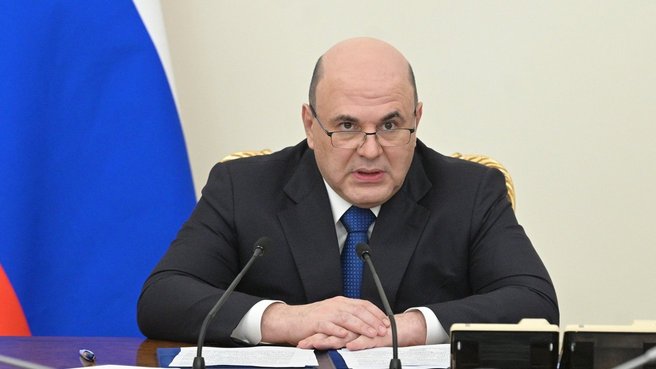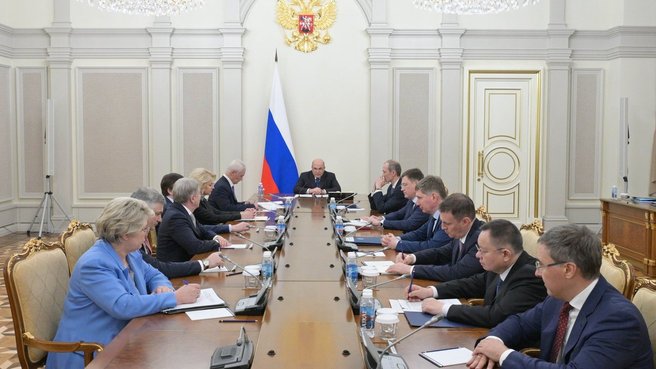Agenda: Funding of the utility infrastructure upgrades, quotas for admission to targeted education at universities, and expansion of the free retraining programmes for citizens.
Mikhail Mishustin’s opening remarks:
Good morning, colleagues.
The Government is working systematically to support the regions in resolving housing and utilities issues. This will continue, as the President said at a recent meeting with businesspeople in Khabarovsk.
We will allocate 12 billion roubles to Russia’s regions to upgrade the utility infrastructure under a special federal project. The funds are intended, among other things, to upgrade utility networks, repair boiler houses and sewage treatment plants to reduce the accident rate, and so that the people can receive quality services. After all, clean water and a warm flat is what first and foremost affects the comfort of people's lives.
During the implementation of the infrastructure agenda, its tools have proved their effectiveness. With these tools, not only housing and utility facilities, but also kindergartens and schools are repaired or commissioned every year in the regions, roads are put in proper condition, and public transport is upgraded.
I am sure that thanks to this support, Russia’s regions will be able to upgrade their utility systems more efficiently, which is very important for our people.
The next issue, and one of the most pressing today, concerns personnel training.
We are working towards this in order to strengthen the technological sovereignty of our country in the near future, in particular, to achieve faster growth in the manufacturing industries. This goal was set by the President. And in order to fulfil it, we need skilled specialists: from researchers to production foremen. This is what our education system should focus on.
Every year, the Government sets quotas for almost 900 areas of training based on applications from the regions. For the next academic year, it has been decided to increase the number of targeted openings for almost half of them.
Over the last few years, the enrolment in engineering and technical specialties, which are very much needed today, has been growing: information technology, electricity and thermal power engineering, aviation, rocket and space engineering, and construction. For some of them, for example, such as Special Radio Engineering Systems, Design of Aviation and Rocket Engines, the number of openings for specified categories of students increased up to 70 percent of the total number of openings. And up to half of them – in the field of ship and vessel construction. Moreover, the regions have declared the need for 22 new areas. Among them are fundamental and applied biology, nanoengineering and nanomaterials.
In total, over 145,000 openings have been allocated in targeted education majors. This is 6 percent more than last year. This approach will help to better orient universities towards successful employment of graduates and, of course, strengthen the leading position of the national engineering school.
Another issue concerns approaches to the system of additional training.
The President noted that the state should help people become competitive in the labour market. This work is being carried out under the Employment Assistance federal project. We provide our citizens with opportunities to acquire new competences for employment.
An application for joining free educational programmes can now be submitted on the Jobs in Russia portal. Each region has a list of professions that are needed locally. Last year, more than 150,000 people were trained in this way. This year's federal budget allocates over 6 billion roubles for these purposes.
Taking into account the President's instructions, we will also expand the range of participants in such programmes. They will now include people who have applied to the employment service to look for work, people with disabilities, as well as parents or guardians who are on leave to care for a child up to 3 years old.
And of course, the opportunity to raise the professional level of young people, citizens of pre-retirement age, participants in the special military operation and members of their families and others will be preserved.
We believe that the decision taken will help with personnel in the regions, including through a more attentive attitude towards the needs of our companies and employers. And those who have undergone retraining will find it easier to find a job to their liking.














